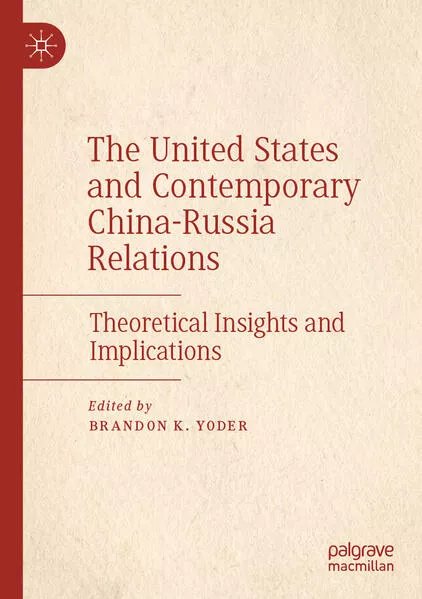
- Publikationen ca: 3
- Gefolgt von 1 Nutzern
- Fragen & Antworten
Yoder, Brandon K.
Brandon Yoder is Lecturer (Assistant Professor) in the School of Politics and International Relations at the Australian National University, Canberra, Australia.

The United States and Contemporary China-Russia Relations
China and Russia have grown progressively closer over the last two decades, yielding a China-Russia “axis” uniquely capable of challenging the United States and of revising key aspects of the international order. Although the scholarly literature has offered detailed descriptions and various ad hoc explanations of this trend, the Sino-Russian bilateral relationship has been the subject of very little scrutiny using rigorous theory, which has precluded the formation of logically coherent and empirically supported explanations for increasing China-Russia cooperation.

The United States and Contemporary China-Russia Relations
China and Russia have grown progressively closer over the last two decades, yielding a China-Russia “axis” uniquely capable of challenging the United States and of revising key aspects of the international order. Although the scholarly literature has offered detailed descriptions and various ad hoc explanations of this trend, the Sino-Russian bilateral relationship has been the subject of very little scrutiny using rigorous theory, which has precluded the formation of logically coherent and empirically supported explanations for increasing China-Russia cooperation.

The United States and Contemporary China-Russia Relations
China and Russia have grown progressively closer over the last two decades, yielding a China-Russia “axis” uniquely capable of challenging the United States and of revising key aspects of the international order. Although the scholarly literature has offered detailed descriptions and various ad hoc explanations of this trend, the Sino-Russian bilateral relationship has been the subject of very little scrutiny using rigorous theory, which has precluded the formation of logically coherent and empirically supported explanations for increasing China-Russia cooperation.